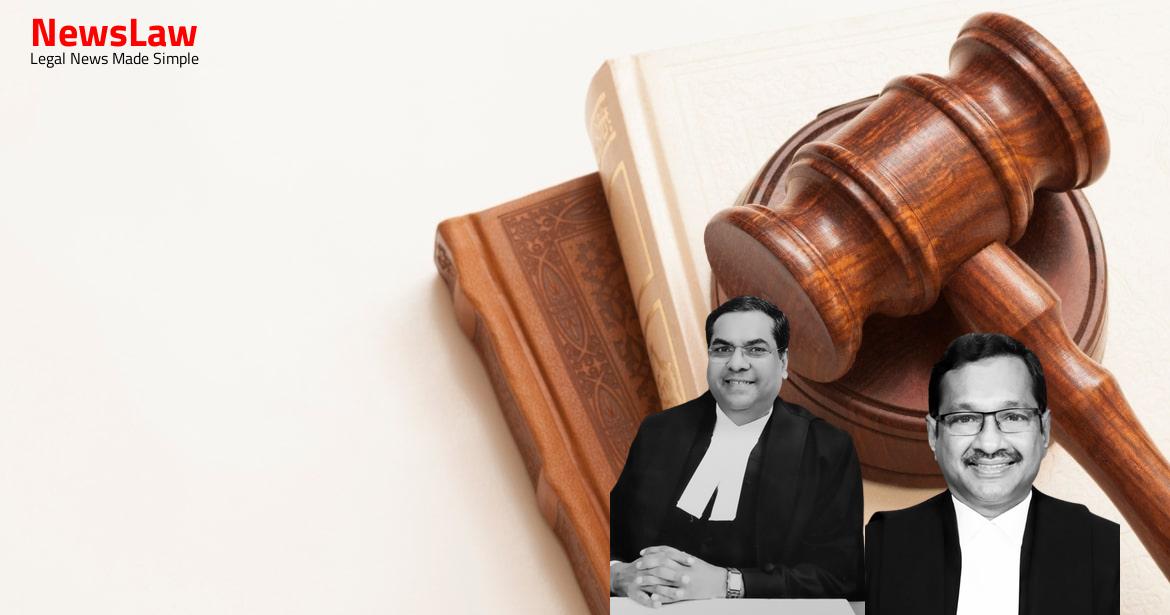Explore the complex legal framework of sentencing in NDPS Act violations. The court’s broad discretion to impose sentences ranging from 10 to 20 years based on factors beyond those listed in the Act is pivotal. Understanding the significance of mitigating and aggravating circumstances, as well as the societal impact, is essential when analyzing court decisions. Stay tuned for a deeper dive into sentencing under the NDPS Act.
Facts
- The appellant’s conviction under Section 21 of the Act was confirmed by the Court.
- The appeal is specifically directed towards the consideration of the sentence imposed.
- The sentence in question is 15 years of rigorous imprisonment along with a fine of Rs.2 Lakhs, with an additional one year R.I. in default of fine payment.
Also Read: Electoral Malpractices in Mayor Election
Arguments
- The counsel for the appellant argued that adequate sentencing is a matter of personal liberty protected by Article 21 of the Indian Constitution.
- Considering mitigating and aggravating circumstances is essential when imposing a sentence higher than the minimum term of imprisonment.
- The appellant, being a first-time convict and a carrier of narcotics, is a poor individual, warranting leniency in sentencing.
- Section 32B of the Act mandates consideration of specific factors when imposing a punishment higher than the minimum prescribed term.
- The main supplier of the narcotic substance remains at large, questioning the need for a higher sentence for the carrier.
- The Special Court failed to provide reasons for imposing a sentence exceeding the minimum term, disregarding factors outlined in Section 32B.
- Citing the case of Rafiq Qureshi vs Narcotic Control Bureau, Eastern Zonal Unit, where a sentence was reduced from 16 years to 12 years for possession of narcotic drugs exceeding commercial quantity.
- Emphasizing that the minimum punishment specified in Section 21 of the Act is 10 years, underscoring the need for a just and reasoned sentencing approach.
- Respondent argues that the punishment of 15 years R.I. is justified as the accused was selling heroin.
- The accused was found in possession of 1 kg of heroin, which is four times greater than the minimum commercial quantity under the Act.
- Quantity of substance is a relevant factor in imposing a higher punishment as per the case of Rafiq Qureshi.
- Mitigating circumstances for the accused include being a poor man, the sole breadwinner of the family, being a first-time convict under the Act, and the main accused was never arrested.
Also Read: Balancing Power and Transparency: Electoral Bonds Struck Down, Disclosure Mandated
Analysis
- Courts can consider factors deemed fit for imposing a punishment higher than the minimum prescribed by law.
- The quantity of the substance the accused is charged with can be a relevant factor in determining the quantum of punishment.
- The decision to impose a punishment higher than the minimum is not restricted to the factors listed in clauses (a) to (f) of Section 32B.
- The Court has wide discretion to impose the sentence/imprisonment ranging between 10 years to 20 years for NDPS Act violations.
- The quantity of substance is a relevant factor in determining the punishment.
- The Court may consider factors beyond those listed in Section 32B while imposing a higher sentence.
- The NDPS Act was enacted to combat organized drug trafficking and address the rise of new addictive substances.
- The interest of society as a whole must be considered while sentencing under the NDPS Act.
- The minimum sentence for commercial quantity offenses is not less than 10 years, extendable up to 20 years.
- Mitigating circumstances like being a carrier or sole breadwinner are not significant in NDPS Act sentencing.
- Possession of significantly higher quantities of drugs can lead to higher sentences.
- The court’s discretion in sentencing is broad, considering public interest and societal impact.
- The main supplier not being apprehended is not a valid reason to reduce the sentence for the accused.
- The court must weigh mitigating and aggravating circumstances but can impose sentences higher than the minimum prescribed.
- Section 32B of the Act provides factors to be considered for imposing a punishment higher than the minimum term of imprisonment or amount of fine.
- The court may take into account the factors listed in Section 32B, as well as any other factors it deems fit, when imposing a higher punishment.
- Factors listed in Section 32B include the use or threat of violence or arms by the offender, influence of public office in committing the offense, involvement of minors in the offense, commission of the offense in educational or social service institutions, affiliation with organized criminal groups, and engagement in other illegal activities facilitated by the offense.
Also Read: Recall of Resolution Plan Approval: Legal Analysis
Case Title: GURDEV SINGH Vs. THE STATE OF PUNJAB (2021 INSC 232)
Case Number: Crl.A. No.-000375-000375 / 2021



